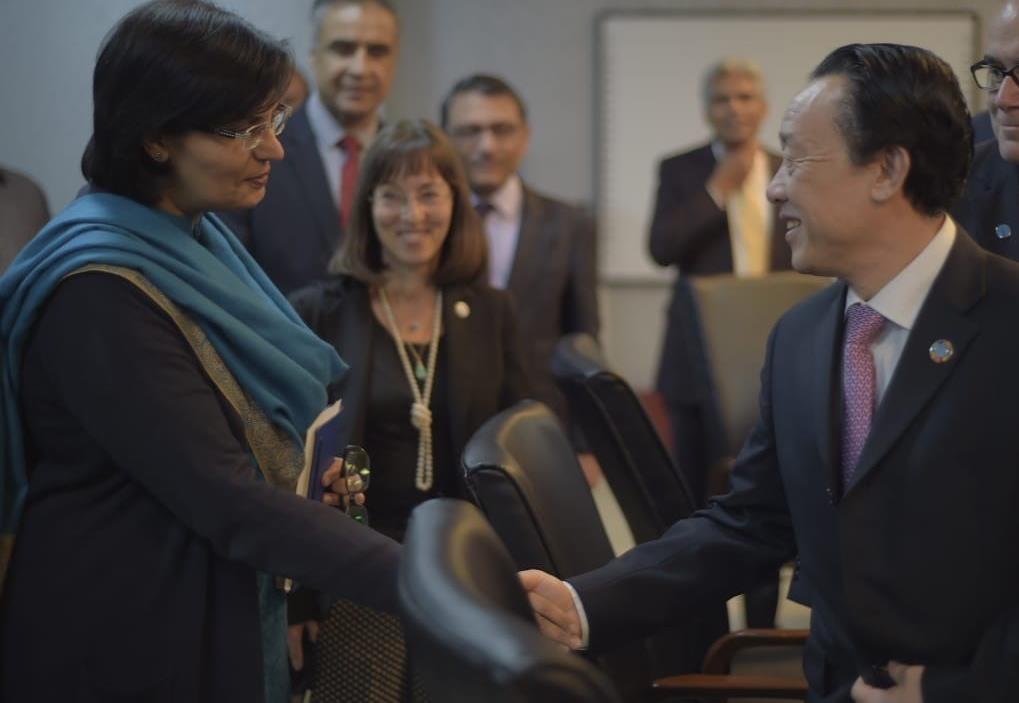Director-General meets with Pakistan’s top social safety net and climate advisers

Meetings in Islamabad with Sania Nishtar and Malik Amin Aslam review the government’s income support programme for rural women and FAO’s Green Climate Fund-backed project along the Indus River Basin
14 February 2020, ISLAMABAD - FAO Director-General QU Dongyu held high-level meetings in Pakistan today to discuss climate change and strategies to eradicate poverty.
He met with Sania Nishtar, a prominent physician who is now Chairperson of the Benazir Income Support Program (BISP), Pakistan’s largest safety-net institution, serving around 6 million poor women. Dr Nishtar is also special assistant to the Prime Minister on Poverty Alleviation and Social Safety.
“We discussed potential avenues of collaboration to support rural women in Pakistan,” Qu said.
The Director-General added that FAO is willing to support Pakistan’s EHSASS Programme, which aims to eradicate extreme poverty and lift lagging districts. Its policy actions include technology and data to create precision safety nets and the promotion of financial inclusion and access to higher education.
He also thanked the Pakistani government for the strong support to the Hand-in-Hand Initiative and highlighted that FAO looks forward to finding potential areas of collaboration in digital agriculture and agricultural value chains in Pakistan.
The Director-General also met with Malik Amin Aslam, an adviser to the Prime Minister for Climate Change, who is also a reforestation advocate. The two reviewed a $49 million project which last year became FAO’s first in Asia to receive a Green Climate Fund grant.
The project has been designed to transform Pakistan’s Indus River Basin, an important food-producing region, by improving agriculture and water management and bolstering climate resilience. The Indus Basin is the world’s largest contiguous irrigation system and is home to 80 percent of Pakistan’s agriculture outputs.
